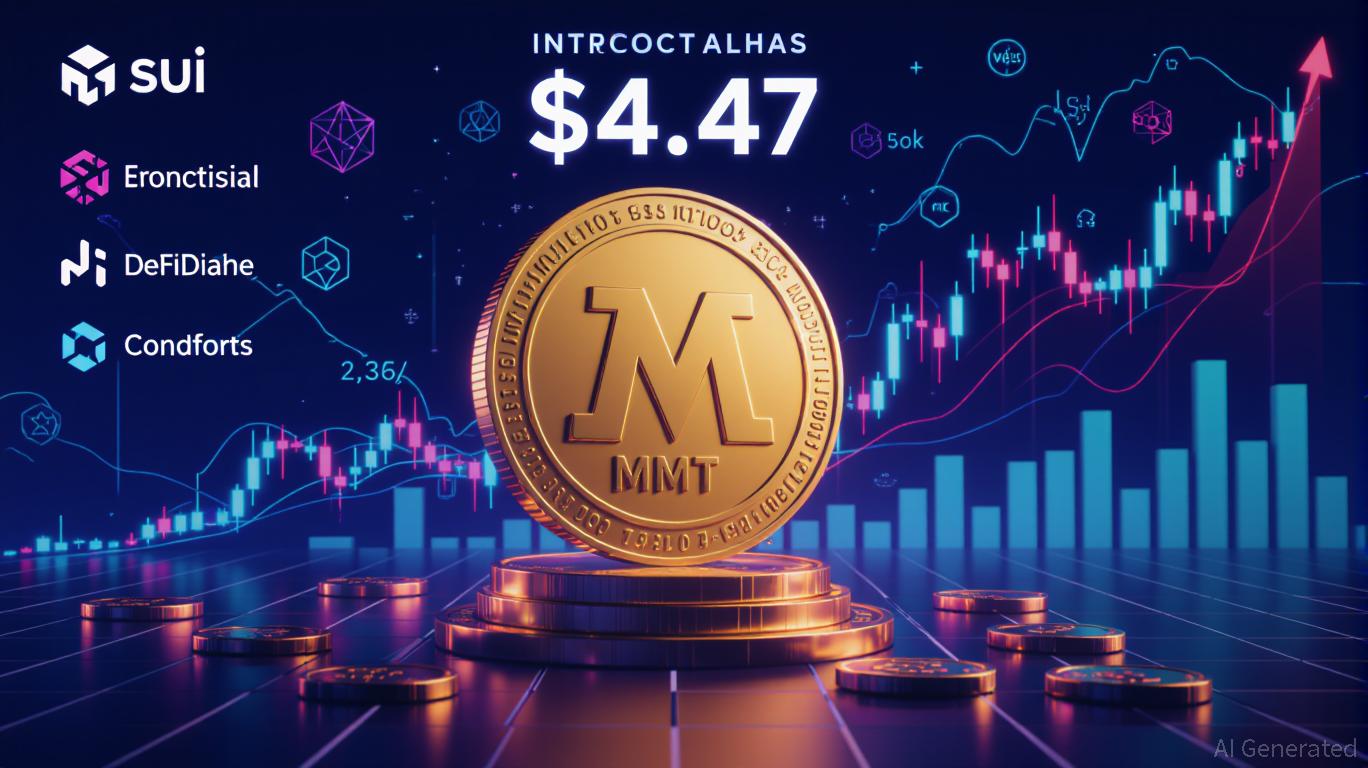South Korea's Cryptocurrency Reform: Will New Regulations Enhance Confidence While Preserving Innovation?
- South Korea's National Assembly plans to enforce strict VASP regulations requiring criminal record checks for all major shareholders, including foreign investors. - The law mandates re-evaluation of existing VASPs, creating compliance challenges for smaller firms with complex ownership structures. - By extending oversight to global criminal records, the reform sets a potential international precedent and could reshape cross-border crypto investments. - While critics warn of stifled innovation, proponents
South Korea's National Assembly is on the verge of passing comprehensive new regulations aimed at Virtual Asset Service Providers (VASPs), a move that could have far-reaching effects on the international cryptocurrency industry. The draft law, which is currently being considered, would require thorough background investigations for VASP shareholders with criminal histories, representing a major change in the way crypto companies obtain regulatory clearance.
The legislation would empower financial regulators to deny VASP registration if principal shareholders—defined as those with substantial control—have criminal convictions anywhere in the world. This marks a departure from existing regulations, which primarily assess the company itself, by extending scrutiny to all significant stakeholders, including overseas investors. Current VASPs would also be subject to renewed evaluation, risking their licenses if shareholders do not comply with the updated requirements. This presents immediate compliance hurdles, especially for smaller firms with intricate ownership arrangements
The scheduled review of the bill on November 27 is consistent with South Korea's ongoing initiatives to reform its crypto sector. Authorities are seeking to curb illegal activities and bolster investor trust. Should the bill pass, the swift rollout would give VASPs limited time to adjust ownership structures or manage the costs of continuous compliance checks.

Opponents of the bill argue that its broad criteria for disqualification—without clear exceptions for less serious or unrelated offenses—could hinder technological progress. Supporters, on the other hand, maintain that these steps are essential for eliminating bad actors and fostering a more reliable digital asset industry. The effectiveness of the policy will depend on fair enforcement that safeguards investors while not imposing excessive obstacles on legitimate enterprises.
The bill’s focus on transparency among shareholders could set a benchmark for other countries. South Korea’s regulatory choices often shape global standards, given its prominence in the cryptocurrency sector. By including foreign criminal records in its vetting process, the country highlights the international scope of the new rules, potentially encouraging other nations to follow suit.
With the November 27 review drawing near, both the crypto industry and regulators worldwide are paying close attention to how South Korea manages the balance between strict oversight and fostering innovation. The decision could reshape global VASP regulations and further cement South Korea’s influence in the evolution of digital finance.
Disclaimer: The content of this article solely reflects the author's opinion and does not represent the platform in any capacity. This article is not intended to serve as a reference for making investment decisions.
You may also like
XRP News Today: "Institutions Show Confidence While Whales Stir Uncertainty: Will XRP Reach $2.60 or Falter?"
- XRP rebounded from $2 support, with analysts targeting $2.60 as a key resistance level within a descending channel. - Institutional adoption grew via new XRP ETFs and Standard Chartered's custodial role, though ETFs hold just 0.5% of XRP's market cap. - Whale selling pressure (200M XRP in 48 hours) and bearish technical indicators below $2.20–$2.52 challenge bullish momentum. - Regulatory uncertainty and unresolved Ripple litigation keep XRP's trajectory dependent on technical execution and macro develop

Unpacking the Rise of MMT Token TGE: Is This a Fresh Driver for Digital Asset Adoption?
- Momentum (MMT) Token's 2025 TGE triggered extreme volatility, surging to $4.47 before an 86.6% drop, exposing speculative market fragility and centralized ownership risks. - Institutional backing (Coinbase, Circle , OKX) and $600M TVL support MMT's DeFi role through RWA tokenization and CLMM liquidity models, despite structural volatility challenges. - 2025 macroeconomic tailwinds (rate cuts, inflation hedging) and regulatory clarity (CLARITY Act, MiCA 2.0) enhance institutional trust, aligning with cryp

Bitcoin Updates: Federal Reserve's Softer Stance and ETF Investments Drive Bitcoin's Recovery to $91,000
- Bitcoin surged above $91,000 in December 2025 as Fed rate-cut odds hit 70%, driven by dovish signals and ETF inflows reversing outflows. - Technical indicators showed oversold RSI levels and seller exhaustion, while altcoins like XRP/ZEC jumped 7.7%-17% amid $2.95T market cap growth. - Institutional flows favored Solana ETFs and altcoin products, but MSCI's crypto exclusion policy sparked backlash from advocates like Michael Saylor. - Retail fear metrics and $605M liquidations highlighted fragility, yet

Ethereum Updates Today: Institutional Investments Rise While Prices Remain Flat: The Challenge of Ethereum's Potential Breakout
- Ethereum's MVRV Z-Score (0.29) signals potential buying opportunities amid prolonged accumulation and institutional ETF inflows. - Retail investors reduced exposure while whales (10K+ ETH) accumulated, contrasting with $92M ETH ETF inflows on Nov 24. - BlackRock's staked ETH ETF filing threatens DATs' opaque fee models as ETH price struggles to reclaim $2,800 despite technical buildup. - Divergent ETF flows ($88M ETHA inflow vs. $53M outflow) highlight market volatility, with analysts eyeing $9K breakout
